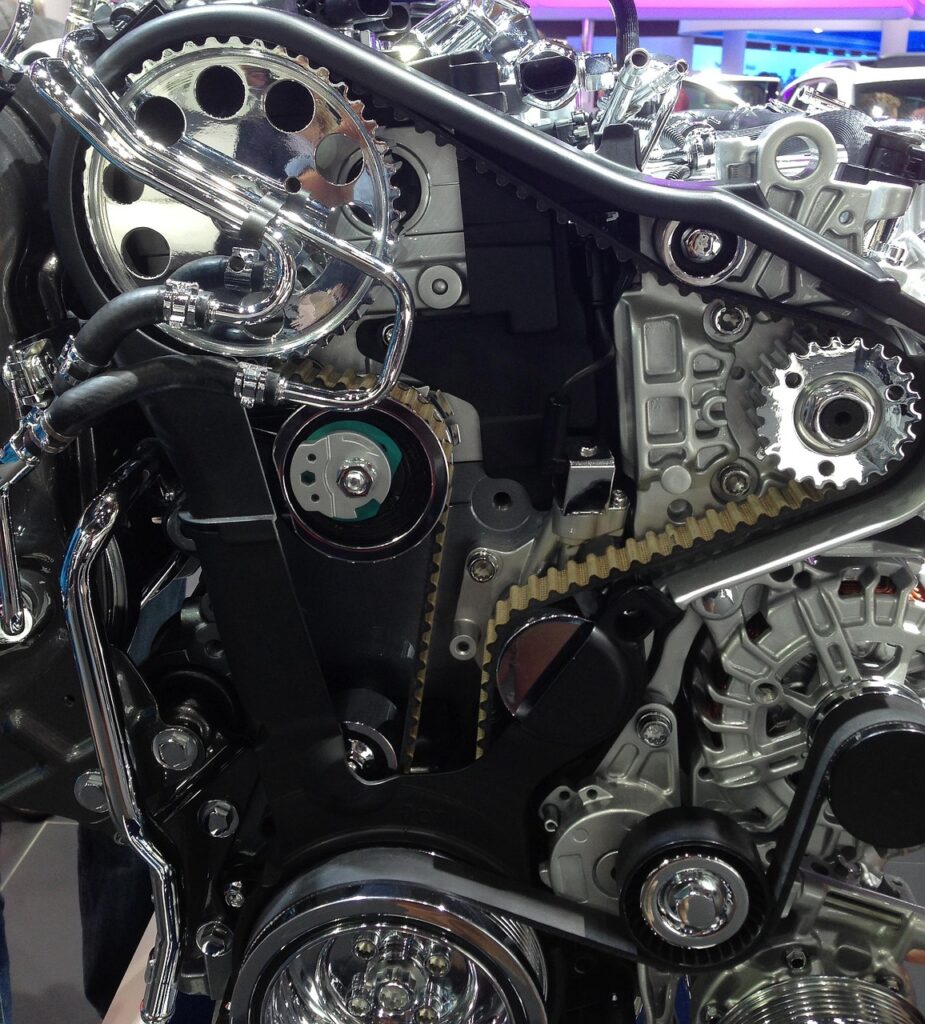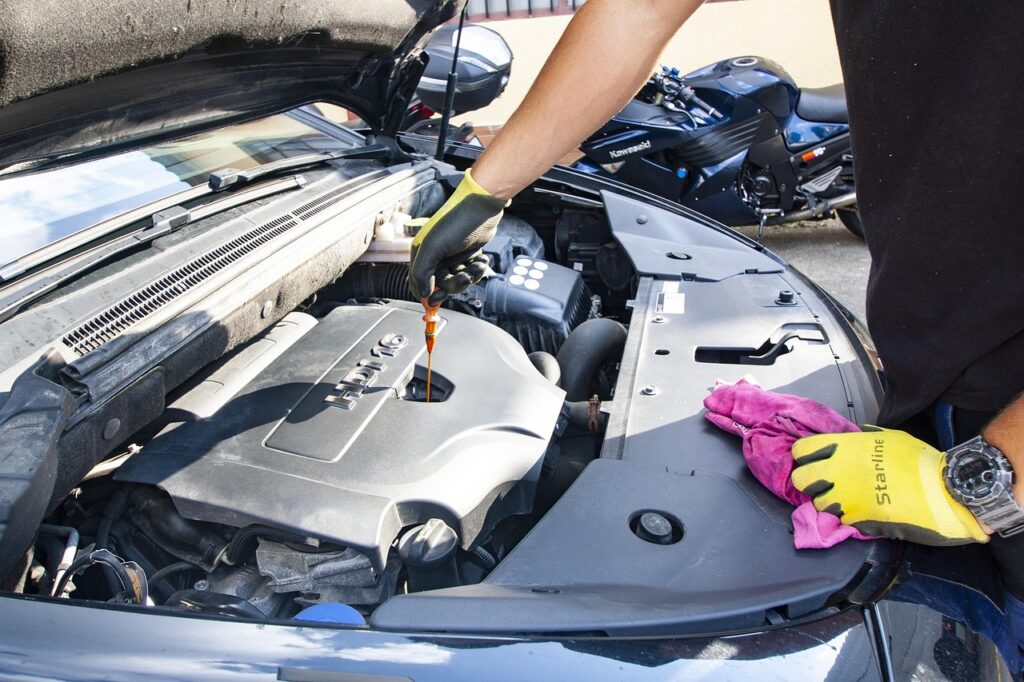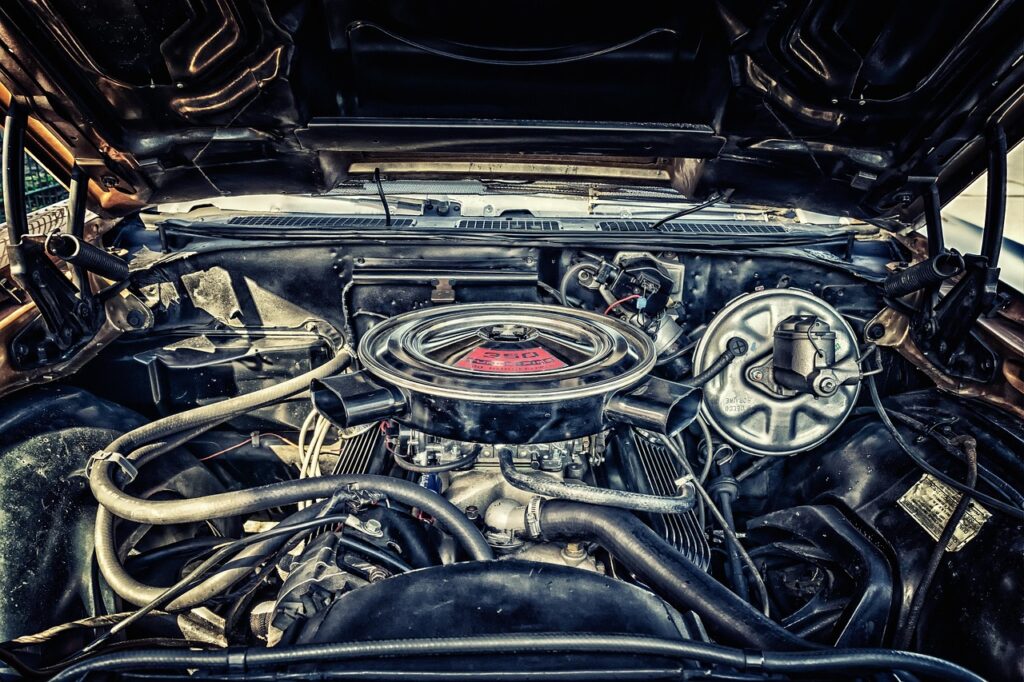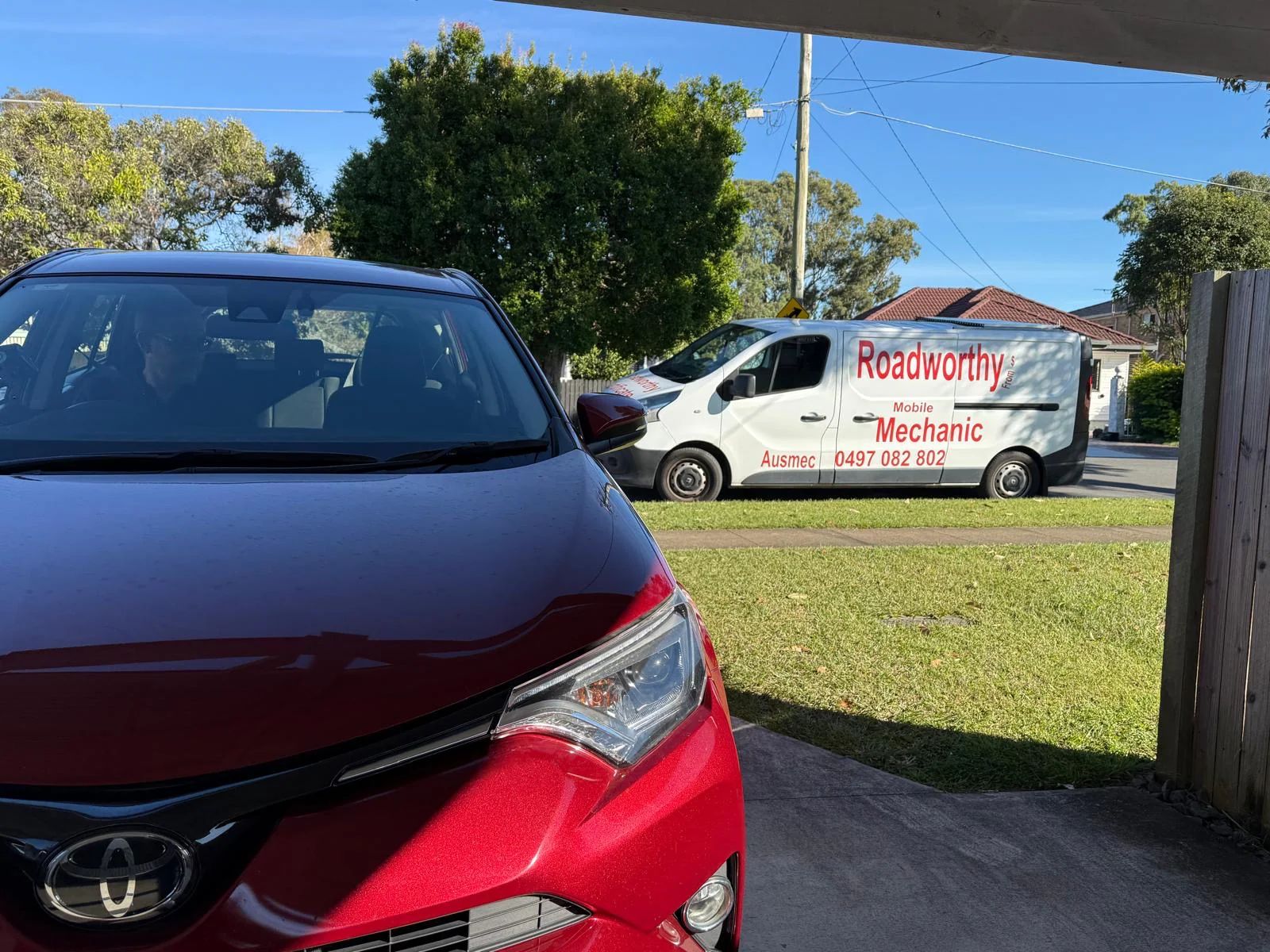
For many, the thought of taking a car to the mechanic brings a familiar mix of anxiety and resignation. Too many people know the pain of dealing with a less-than-reputable auto mechanic. The occurrence is seared into the pop culture of our modern world because auto mechanics work within a critically important subsection of the service arena. They are highly skilled fixers who rely on a bevy of specialized tools and a reservoir of technical know-how.
While there are many auto body and engine maintenance tasks you can handle on your own, the professional mechanic remains a massively important resource. This vaunted status also delivers a knowledge and power imbalance that makes car owners ripe for the picking. Thankfully, most auto mechanics are honest folks. They diagnose problems on a daily basis and do their best for customers, but that’s not always the case.
In fact, deceptive practices permeate the entire industry, with some mechanics weaponizing problems for their own benefit. Auto repair fraud exacts losses amounting to almost $2 billion every year. To empower consumers and help them navigate this complex landscape, we’ll expose 15 dirty mechanic scams to watch out for and how you can protect yourself from getting taken advantage of. Whether you’re getting an oil change, replacing brakes, or fixing a faulty transmission, knowing the tricks of dishonest mechanics can save you hundreds, if not thousands, of dollars. Let’s dive in!
1. **Overcharging for Parts and Labor**One of the most straightforward yet insidious scams in the auto repair industry involves mechanics simply overcharging for parts and labor. The average mechanic charges between $75 and $130 per hour for labor, a rate that can fluctuate based on the job’s complexity, location, or the mechanic’s expertise. However, it’s often difficult for a car owner to know how many hours a particular job should genuinely require. An unscrupulous mechanic might quote a price for four hours, fully aware they can complete the job in three, effectively pocketing the difference.
This deliberate padding of labor hours can significantly inflate your bill. Since much of what a mechanic does goes unseen, there’s plenty of wiggle room for these deceptive practices. It becomes challenging to dispute such an overcharge without prior knowledge or a trusted relationship with the repair shop. The key lies in proactively arming yourself with information before any work begins.
Beyond labor, the cost of parts presents another fertile ground for overcharging. Some mechanics will sell you overpriced components, claiming they are rare or hard to find, when in reality, you can procure them much cheaper at an auto parts store or online. One of the easiest ways a dishonest mechanic can rip you off is by marking up parts excessively. Doing as much research as you can to bring your own knowledge to the table will help defend you against these kinds of markups in all regards. Getting a quote and then independently looking up the cost of parts will give you a benchmark for fairness.
Read more about: Unmasking the Hidden Costs: Why These Seemingly Cheap Car Hacks Could Be Draining Your Wallet
2. **Verbal Quotes Turning into High Bills / Lack of Written Documentation**A critical defense against auto repair scams is a written quote. Before any work is done on your car, you should always insist on a written estimate that clearly explains what will be done. A written quote offers a basic framework detailing the diagnosis of your car’s problem and the steps the mechanic will take to fix it. This document not only helps you understand the proposed work but also serves as a vital protection against scams in the auto mechanic world.
A mechanic who refuses to provide a written quote is almost certainly one to avoid. There’s no legitimate reason why a reputable mechanic wouldn’t be willing to provide a written explanation of their recommendations for fixing your vehicle. This should always stand as a significant red flag when you are seeking out a service provider. Without a written explanation of the work and a basic framework for the cost, there is no accountability protecting you in the event of a misunderstanding or a straightforward scam.
With a piece of paper detailing these elements, a reputable mechanic cannot unilaterally change the terms on you later. A scammer might offer verbal assurances that the work is minor and that you’ll have your car back in a day, only to turn around and claim they never promised these things at all. Since your car is physically in their garage, this added power dynamic can make it difficult to stand up for yourself. A written quote, alongside a final itemized receipt, effectively resolves this tension by providing tangible proof of agreed-upon services and costs.

3. **Unauthorized Repairs**In addition to receiving written specifics about the job, no garage should ever perform work on your vehicle without getting explicit approval from you, the car owner. Simply because an estimate has been delivered to you does not mean you have accepted the quotation. Some unscrupulous mechanics will take it upon themselves to engage in a variety of fixes and then suggest that you have no choice but to pay them in order to get your car back. They may claim additional repairs were “necessary” or that they “figured you’d want them done.”
This behavior is not only dishonest but also illegal in many places. There are two primary problems with this unscrupulous practice. Firstly, a mechanic cannot legally withhold your vehicle from you under normal circumstances. While you’ll typically pay for services performed before taking your keys back, the vehicle remains yours. Anyone holding it without a mechanic’s lien—which can only be applied for work that was mutually agreed upon—is breaking the law. The typical payment-before-release order provides cover for misbehavior, but legally, they have no real ground to stand on if work was unauthorized.
More importantly, if you have not given your explicit consent to perform services on your vehicle, a mechanic cannot enact those changes and then charge you for them. The mechanic is acting on their own volition if they proceed with unauthorized work, and any costs arising from that action are their responsibility. Always ensure you sign an estimate before any work is done, and explicitly tell the mechanic not to perform any repairs without your prior approval. I personally know someone who had additional work performed on their vehicle once without secondary approval for the extras, and the repair shop eventually ate the cost of this added work.
Read more about: Over 78,000 Jeep Wranglers Recalled: What Owners Need to Know About the Latest Safety Alert
4. **Unnecessary Repairs / Upselling**Due to the inherently complex nature of automotive repair, it can be genuinely difficult to diagnose a problem in its entirety. It’s uncommon to bring your car into a shop and have every system beyond the immediate problem area working in absolutely perfect order. Therefore, you may sometimes encounter scenarios where additional, optional replacements or upgrades might be genuinely worthwhile. A reputable mechanic might suggest you consider these additional repairs, but they will always stress that such work isn’t strictly necessary to resolve the primary issue you brought your car in to solve.
However, this scenario also presents a prime opportunity for scammers to recommend or perform repairs that are either not truly needed, exaggerated in their urgency, or entirely false. If you have a problem with your brakes, for instance, and a mechanic suggests performing some kind of maintenance on the engine, they might be acting as a concerned helper – but you could also be speaking with a scammer. A mechanic that goes out of their way to explore other areas of your car in search of problems may be hunting for opportunities to take advantage of you, especially if the suggested repairs seem unrelated to your initial complaint.
Be particularly wary of “free inspections” that become a trap. A “free inspection” may seem like a great deal, but often it’s bait to lure you in for costly, unnecessary repairs. After the inspection, you might be handed a long list of urgent repairs, many of which are either exaggerated or completely fabricated. Similarly, incorrect diagnoses are a common scam where a mechanic misidentifies the issue to sell you more expensive, unneeded repairs. Always ask for detailed explanations for any suggested repairs, and if something feels off, consider getting a second opinion before authorizing any work.
Product on Amazon: Prime-Line U 9537 Lock and Door Reinforcer – Reinforce and Repair Doors, Add Extra Security to your Home and Prevent Unauthorized Entry – 5-1/2 in., 2-3/8 in. x 1-3/4 in., Brass
Brand: PRIME-LINE
Binding: Tools & Home Improvement Product Group: Home Improvement
Price: 32.35 USD
Rating: 4.4 Total reviews: 182
Color: Brass
Material: Brass
Style: Modern
Item Weight: 15.2 ounces
Features:
1. REINFORCE AND REPAIR DOORS – Reinforce weak spots on entry doors and repair damaged areas with this Prime-Line U 9537 Lock and Door Reinforcer.
2. ADDITIONAL HOME SECURITY – Securing the weak spot of an entry door with a brass lock and door reinforcer can add additional home security and help you rest easy knowing you’re preventing forced entry.
3. CAN BE USED – This combo lock and door reinforcer can be used on wood or metal doors with mortise or drive-in latches. It also accommodates key-in knob locksets, deadbolts, or combination locksets.
4. EASY INSTALLATION – Installation is a breeze, and all fasteners are included – extra security and peace of mind can be achieved in just minutes!
5. FITS – 1-3/4 inch thick doors only with 2-1/8 inch bores, 2-3/8 inch backset, 5-1/2 inch hole centers, 3-7/8 inch width x 10-7/8 inch height.
Shopping on Amazon >>
Read more about: As a Car Expert, Here Are 14 Compelling Reasons I’d Never Buy a Used Car from a Dealership

5. **Technical Jargon and Unanswered Questions**An auto mechanic essentially acts as a salesperson. These professionals diagnose your vehicle’s issues and then suggest appropriate repairs, effectively attempting to sell you on their services. Typically, when engaging in conversation with customers, a mechanic should be warm and friendly, prepared to answer questions. Even for a minor repair, you’re likely looking at a bill in the three or four-figure range, making it crucial to be certain the repair is necessary and that the chosen mechanic is capable of getting the job done efficiently and honestly.
Asking questions is the most effective way to understand the nature of the proposed solution and the suitability of the mechanic in tackling that problem. A mechanic who is unwilling to answer your questions thoroughly is likely attempting to streamline the process of getting customers in the door and taking their money. While not every mechanic will be cheerful and personable – some may come off as gruff but still perform quality service honestly – a mechanic who won’t discuss their suggested fixes beyond a cursory overview might not be the best person for the job.
A mechanic looking to pull one over on you might also rely heavily on lengthy, technical explanations for the services they are offering. While a truly deceitful mechanic might bill you for work they don’t actually do, one engaged in scam behavior can easily oversell the difficulty of a task and then upcharge you for the work. This approach relies on your inability to decipher what is being explained. If you don’t understand the full picture, it’s easy for a mechanic to talk about how much work is involved, then bill you for added hours or even additional parts that aren’t necessary. The best way around this scam tactic is to always ask for a simplified, layman’s explanation of the repair work. If a mechanic can’t break down the basics of what they will do to your car to fix it into simple terms, you may not be working with an honest service provider.
6. **Fake or Unnecessary Fluid Flushes / Oil Claims**One common and lucrative scam involves mechanics pushing unnecessary fluid flushes or making misleading claims about your vehicle’s oil levels. You might hear urgent pronouncements like, “Your coolant is horrible – it’s going to need a flush right away!” or similar warnings about transmission or brake fluid. This is often a bait-and-switch tactic designed to convince you that your car is in urgent need of flushes that are either completely unnecessary or far overdue before they actually are.
The truth is, most vehicle fluids are designed for longevity, lasting anywhere from 50,000 to 100,000 miles under normal driving conditions. Scammers frequently push these flushes at much shorter intervals, sometimes as early as 30,000 miles, knowing that a single flush can cost $100-$300. They might even present dirty fluid samples that aren’t actually from your car to create a false sense of urgency. Don’t fall for these deceptive practices; always ask for concrete proof like test strip results or lab reports, and consult your vehicle manual’s recommended maintenance schedule.
Similarly, a mechanic looking to make a quick buck might offer to test your oil level, suggest it is low, and recommend a top-up. The problem is in the phrasing: while it’s possible to have lost oil, requiring a top-up, this typically indicates a leak somewhere in your system. If a mechanic offers to top up your oil without thoroughly looking for the source of the low level, they are inadequate at best and blatantly lying at worst. You won’t typically require an oil top-up between routine oil change services, as the system is a closed loop operating under pressure. Always insist on identifying the cause of any low fluid levels, rather than just masking the symptom.
Product on Amazon: Hard Questions, Real Answers
Binding: Kindle Edition Product Group: Digital Ebook Purchas
Price: 15.91 USD
Rating: 4.6 Total reviews: 152
Shopping on Amazon >>
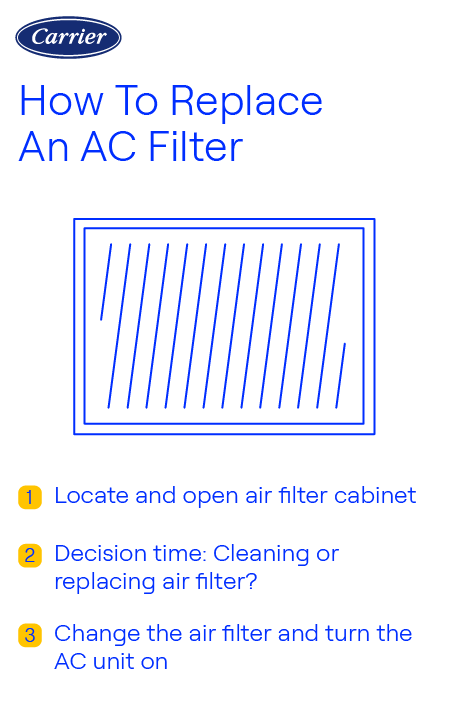
7. **Unnecessary Air Filter Replacement Pitches**Mechanics have unfortunately been known to hold onto dirty air filters removed from other cars, using these old parts as props to sell you on a last-minute, unnecessary replacement. This pitch frequently involves pulling your car into the garage and lifting it, making it difficult for you to inspect the vehicle and verify that the part being shown is actually from your car. The mechanics leverage the logistics of removing parts from your vehicle to lend legitimacy to their deceptive pitch, performing this act where you cannot easily see or intervene.
Even so, if you didn’t bring your vehicle in for a repair that involved the air filters, there should be no reason for a mechanic to remove one from your car in the first place. Therefore, any sudden pitch for an air filter replacement, or for any other part removed specifically to show you a “necessary” replacement outside the scope of your original work, is more than likely a scam. Most air filters last 15,000 to 30,000 miles under normal driving conditions, so unless you regularly drive through dusty construction zones, your filter is likely working just fine.
To protect yourself, you can easily inspect your own air filter by popping your hood; the air filter housing is usually visible and accessible. Take a quick photo before any service appointment. You can check for signs of a good filter: light should still pass through when held up, and there should be no major tears or holes, although some dirt is normal and expected. Furthermore, replacing an air filter is a simple DIY task that takes about 30 seconds and requires no special tools, costing $10-15 for the part online. Don’t let a mechanic charge you $50 or more for this basic maintenance.
8. **Refusal to Return Old Parts**When it comes to parts and replacements, it’s crucial for all car owners to remember one fundamental principle: the car you bring into the shop for servicing is yours, and every individual part within that car also belongs to you. Whether it’s a tiny bolt, a spring, or the entire engine block, any part that comes out of your vehicle remains your property. Of course, it can be entirely efficient and beneficial to have the shop discard old parts you no longer need, especially with a mechanic you know and trust, as this saves you the hassle of properly disposing of potentially problematic waste materials.
However, if you are getting your car looked at by a mechanic you don’t know, asking for the old parts back serves as a critical verification step. It confirms that the work you have paid for has actually been done. If a mechanic cannot produce a part they claim to have taken out of your car, you cannot be entirely sure that they actually made the change. This scenario should immediately raise a red flag, as dishonest shops might charge you for a new part while leaving the old, worn-out one in your car, or simply not performing the repair at all.
As a result, any mechanic that refuses to provide you with removed parts is one you should steer clear of. Any reputable mechanic in the business will be more than happy to hold on to these components, or at least show them to you, to put you at ease and demonstrate transparency. Only scammers who are looking to con you will balk at this simple, reasonable request. Insisting on seeing or taking back your old parts is a powerful way to hold mechanics accountable and ensure you’re getting the service you paid for.
Navigating the automotive repair landscape requires more than just knowing a few common tricks; it demands a comprehensive understanding of the multifaceted ways dishonest mechanics attempt to exploit consumers. Building on our initial exposition, this second section delves into seven additional cunning deceptions, offering practical, actionable advice to empower you with the knowledge needed to make informed and secure vehicle maintenance decisions.
Read more about: Jay Leno’s Garage: Beyond the Hangar Doors – A Deep Dive into Automotive History and Unrivaled Passion

9. **No Certifications or Licensing Displayed**Upon entering an auto repair shop, immediately look for displayed certifications and licensing. Reputable mechanics proudly exhibit credentials like Automotive Service Excellence (ASE) certifications and state licenses, signaling proven competence and industry adherence. These displays offer initial assurance of professionalism.
Absence of these documents is a red flag. Scammers often avoid such scrutiny. If no credentials are displayed, ask the shop to present them; legitimate businesses comply. Verify credentials online where possible.
Should a mechanic hesitate, offer excuses, or refuse proof, your trust may be misplaced. Your vehicle’s safety and finances depend on competent hands. Take your business elsewhere, seeking a facility demonstrating transparency through proper certification.
Product on Amazon: NATGIC Motorcycle Air Cleaner Intake Moto Air Filter Replacement System Kit for Har ley Sport ster XL883 XL1200 X48 2004-2018,Red-Purple (Pack of 1)
Brand: NATGIC
Binding: Automotive Product Group: Automotive Parts and Accessories
Price: 13.99 USD
Rating: 4.1 Total reviews: 190
Product Dimensions: 1.98″L x 3.78″W x 1.98″H
OEM Part Number: NG-1831
Shape: Round
Manufacturer: NATGIC
Features:
1. 【About Motorcycle Air Filter】: Our Motorcycle Air Filter is made of High-quality CNC Billet aluminum. Size: Outer Diameter: 3.78″ /9.6cm, Inner Diameter: 2.91″ /7.4cm, Height: 1.97″/5cm. Internal breathing system – clean installation – No hoses, No oil-catchers, no brackets.
2. 【About Fitments】: Fit for Har ley Sport-ster XL883 XL1200 X48 2004–2018. For expample,for Har ley Sport-ster XL883 XL1200 X48 from 2004 to 2018, for 2015 Har ley Forty Eight XL1200X, if you want to know more specific models, please refer to the detailed description below or picure .
3. 【Easy to install and use】: (1) Our Motorcycle Air Filter is easy to install and use. (2) You can use it environmentally. It can re-usable, simple to wash, dry, and re-oil,eliminate the biggest restriction in a Har ley Sport-ster engine, and save more money.
4. 【NATGIC Warranty & Service】: NATGIC Products are strictly tested for sale!! We offer “One Year” warranty on items damaged during delivery or have a confirmed manufacturer defect. The product may be compressed and deformed during transportation.
Shopping on Amazon >>
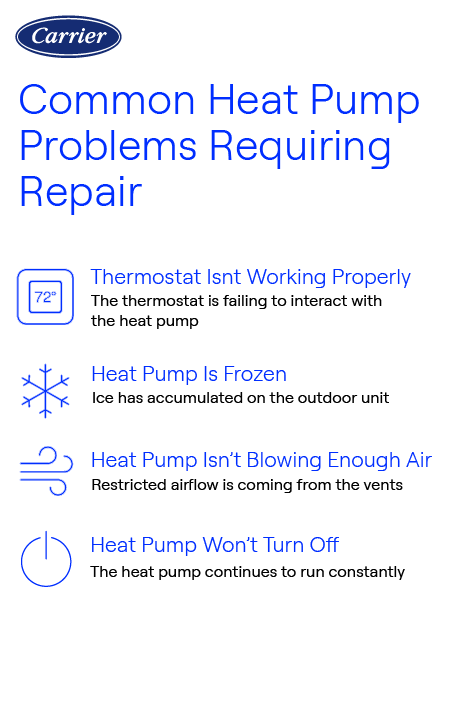
10. **Pressure to Approve Repairs Immediately**Dishonest mechanics often use high-pressure tactics to rush repair approvals. A trustworthy professional understands car repairs involve significant decisions and costs, allowing ample time, even encouraging a second opinion. They prioritize informed consent, respecting your decision.
Conversely, shady shops resort to scare tactics, instilling panic. Alarming pronouncements like “Your brakes could fail!” or “Your car is unsafe!” aim to trigger emotional responses. This manipulative language compels immediate approval for expensive work, regardless of genuine necessity.
To counter this, always insist on a detailed, written estimate before work begins. Never feel obligated to decide on the spot. Confidently state, “I need a second opinion” or “I need time to review this.” An ethical mechanic respects your decision; an informed customer is a satisfied one.
Read more about: Consumer Reports Insights: 12 Top SUVs Proven to Last Over 250,000 Miles for Unrivaled Long-Term Value
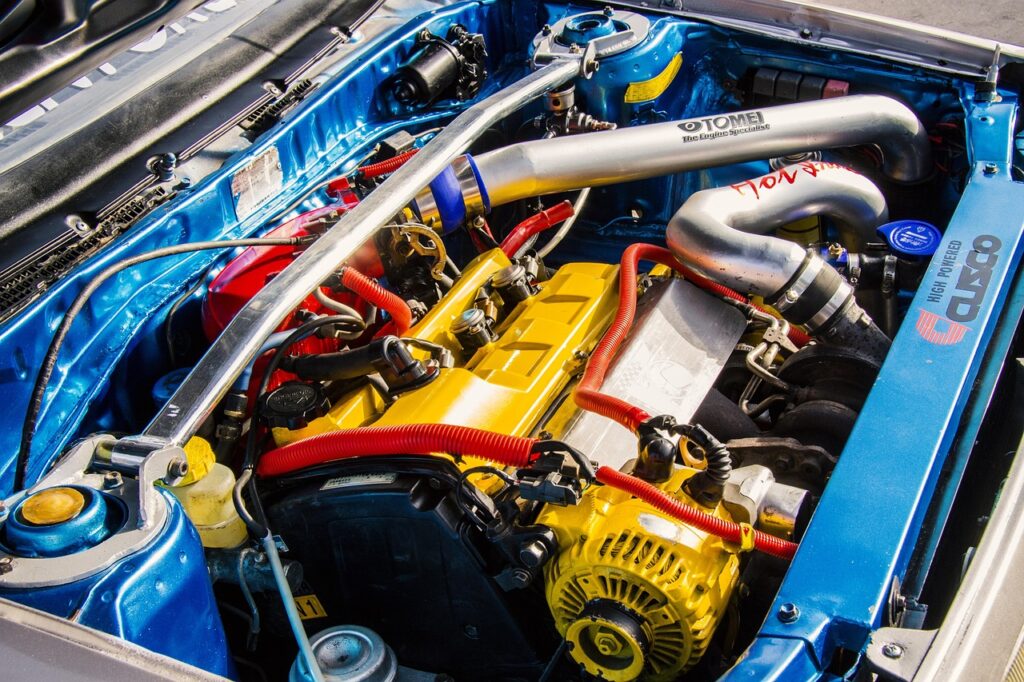
11. **The Mystery Check Engine Light Trap**Few things strike more fear than a check engine light. Dishonest mechanics exploit this, throwing intimidating terms like “oxygen sensor failure” or “catalytic converter issues.” These high-cost repair estimates are designed to overwhelm you.
However, reality is often less dramatic. About 10% of check engine lights stem from a loose gas cap, a minor fix. Many warnings indicate minor issues, not emergencies. Even a dirty air filter can activate this light, leading to costly, unnecessary diagnostics.
Your best defense is a basic OBD2 scanner. These affordable devices (around $20) plug into your car’s diagnostic port, retrieving the exact trouble code, demystifying the warning. A P0455 code points to a loose gas cap ($15 fix). A P0171, indicating a lean system, often just needs an air filter.
Don’t let panic and jargon dictate repair decisions. An OBD2 scanner is an invaluable tool, allowing you to understand the issue before visiting a shop. This empowers you, putting you in control and shielding your wallet from exploitation.
Read more about: 12 Luxe Fall Picks for Women Over 60 That Make Basic Outfits Look Effortlessly Elevated

12. **Upselling Synthetic Oil Scam**A common scam: mechanics insisting you need synthetic oil during a routine oil change. Their pitch often touts benefits like reduced engine wear and improved performance, sounding like a wise investment. Many readily agree, assuming optimal car health.
However, most vehicles (around 75%) run fine on conventional oil, meeting manufacturer specs. Synthetic costs twice as much, but simply paying extra doesn’t guarantee better performance or longer life, especially under normal driving. Unless your owner’s manual specifies synthetic, you might be wasting money.
Synthetic oil benefits specific situations: high-performance engines, extreme temperatures, or heavy-duty towing. For everyday commuting, conventional oil is perfectly adequate. Always check your oil cap or owner’s manual for the correct specification.
If it states “5W30 conventional,” that’s what your car requires. Don’t let mechanics push synthetic oil as an essential “upgrade” during routine changes; it often represents significant profit, not genuine service.
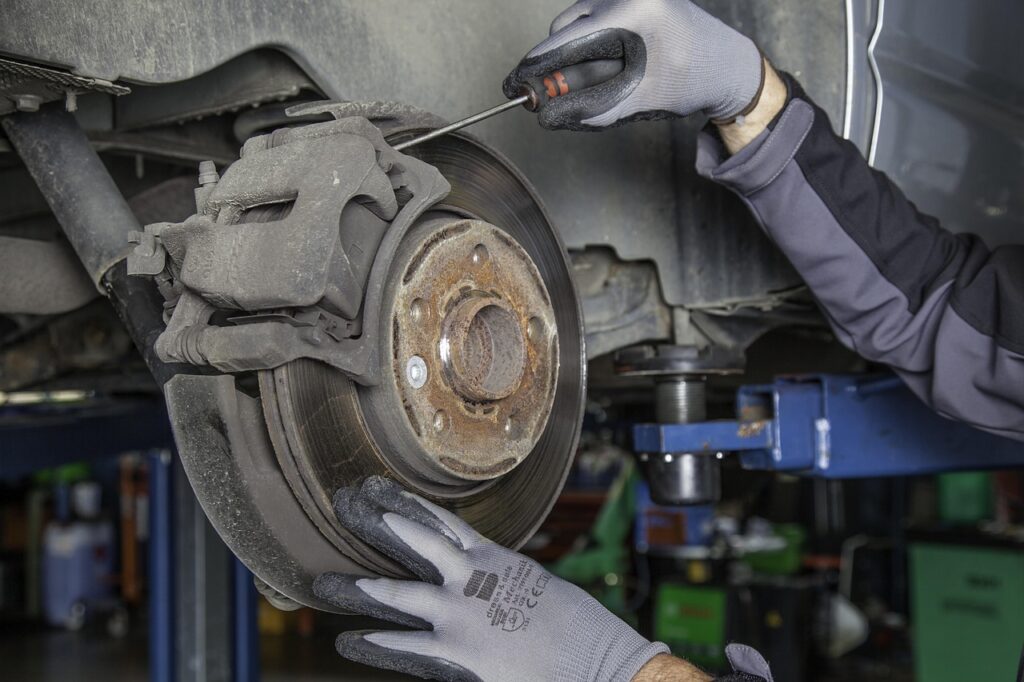
13. **The Brake Pad Scare Tactic Scam**“Your brake pads are dangerously thin!” This phrase, delivered with urgency, instills fear. Many shops use this high-pressure tactic, preying on safety concerns to push premature, unnecessary brake pad replacements.
Understanding actual replacement thresholds is key. Industry standards indicate replacement is necessary when pads wear to 3mm. Unscrupulous shops often push replacements at 5mm or higher, costing hundreds long before truly required.
To verify, always ask to see actual brake pad measurements using a caliper. Legitimate mechanics gladly provide proof. Most modern vehicles have wear indicators—metal tabs that squeal when pads truly need replacing.
While brake maintenance is crucial for safety, don’t let fear tactics rush repairs. A $50 second opinion could save hundreds. Prioritize accurate information and verifiable proof over alarming rhetoric for your braking system.
14. **Fake Factory Parts Claims and Counterfeit Parts**A prevalent scam: mechanics claiming only “factory parts” (OEM) are suitable, falsely stating aftermarket alternatives void warranties. This narrative pushes you toward expensive options, boosting shop profits.
OEM parts are identical to originals but carry a significant financial catch. Dealers and some shops charge two to three times more than high-quality aftermarket options. An $80 aftermarket alternator, for example, becomes $200 with an OEM brand logo.
Aftermarket parts are often misrepresented. Studies show 89% perform as effectively as OEM, typically costing 30-50% less without compromising performance. Using aftermarket parts generally won’t void your warranty (Magnuson-Moss Warranty Act protects this), unless your rare, specific warranty requires OEM-only.
Beyond OEM vs. aftermarket, *counterfeit* parts pose a dangerous scam. These fake, untested components present severe safety risks. Counterfeit seatbelts, brake pads, engine bolts, and airbags are not made to safety standards. Mechanics using them pocket profits while compromising your safety.
Always inquire about part origin and quality. Consider reputable aftermarket options over unverified “factory” claims or dangerously cheap counterfeits. Your vigilance protects against financial exploitation and critical safety hazards.

15. **Phantom Repairs Exposure Scam**Auto repair fraud costs drivers nearly $2 billion annually. Among the worst are “phantom repairs”—billing for parts or services never performed. This fraud relies on your inability to verify work, leaving your car unchanged but your wallet lighter.
Red flags abound on invoices: vague descriptions like “adjusted components” or “system service” can mask unperformed work. Refusal to show removed old parts is critical proof. Lack of before-and-after photos or detailed documentation (part numbers, labor hours, itemized costs) also warrants suspicion.
Proactive measures protect against phantom repairs. Always request to see old parts. Take photos of problem areas before service for evidence. Insist on specific, detailed documentation for all work. Pay with a credit card for dispute protection.
A customer paid $600 for a timing belt, only to find the cracked original untouched after a second inspection. This highlights trusting instincts: if a shop can’t provide concrete proof, dispute charges and seek a trustworthy second opinion. Vigilance and documentation reduce fraud risk.
Protecting yourself from the cunning tactics of dishonest mechanics is an ongoing endeavor, but one that yields substantial rewards for your wallet and peace of mind. As we’ve seen, the auto repair industry, while largely populated by honest professionals, harbors a darker side where deceptive practices flourish. By understanding these various scams, from the subtle pressures to the outright fraudulent billing, you transform from a potential victim into an empowered consumer. Remember, knowledge is your most potent tool; always do your research, ask probing questions, demand clear documentation, and never be afraid to seek a second opinion. Your vigilance is the ultimate safeguard against unnecessary expenses and compromised vehicle safety. Drive smart, and ensure your hard-earned money is spent on genuine repairs, not elaborate schemes.

